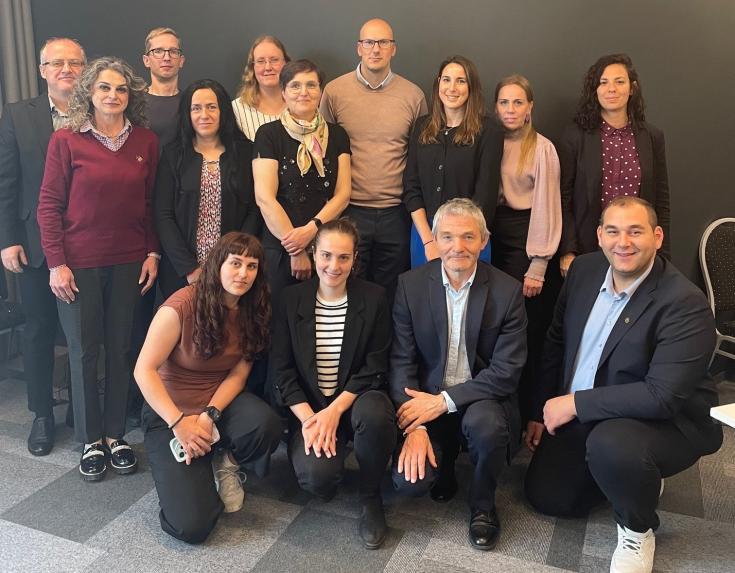What we learned at the Tallinn workshop
As societies move toward more inclusive and balanced development, rural proofing is becoming essential to ensure that public policies take into account the specific needs and realities of rural communities. On May 28–29, 2025, an international workshop took place in Tallinn, Estonia, co-hosted by the Estonian Ministry of Regional Affairs and Agriculture and the Association of Municipalities of Tartu County, in cooperation with the Interreg Europe Coop4RURALGov project.
The core question:
How can we implement data-based rural proofing in policymaking?
Why Rural Proofing Matters
Policy decisions often have different impacts on rural versus urban areas. Rural communities typically face greater challenges in accessing services, infrastructure, and opportunities. Rural proofing helps identify and address these disparities early in the policy cycle. It promotes fairer, more targeted, and more effective policies, while strengthening democratic legitimacy by ensuring that rural voices are not left out.
Key Themes and Presentations
The workshop brought together experts and stakeholders from Estonia, Finland, Ireland, Spain, and Bulgaria to share practices, challenges, and tools for more inclusive policymaking.
🔹 Keynote – Antonia Husberg
Ministry of Agriculture and Forestry, Finland
Husberg shared Finland’s experience in building a rural policy ecosystem where spatial data, research, and public participation are central. She emphasized integrating rural proofing throughout the policy cycle – not just as an afterthought.
🔹 Holger Ehrlich & Eneli Kindsiko
Estonian Ministry of Regional Affairs and Agriculture & Estonian Foresight Centre
They presented a study modeling the future spatial and temporal accessibility of public services in rural Estonia, showing how such data can inform better planning and investment.
🔹 Dr. Aare Kasemets
Ministry of Regional Affairs and Agriculture
Kasemets introduced a pilot analysis on how regulatory impact assessments in Estonia address rural, urban, and coastal effects. His presentation highlighted the need for better integration of territorial perspectives in legislative processes.
🔹 Anne Põder
Estonian University of Life Sciences
Põder shared comparative research on rural proofing practices in Estonia, Spain, Ireland, and Bulgaria, identifying gaps and promising approaches to embed rural perspectives more systematically.
Collaboration Across Borders
The event was part of the Coop4RURALGov project, co-funded by the European Union through Interreg Europe. The project fosters peer learning and policy improvement among regional and national actors, aiming to enhance rural governance and voice across Europe.
The workshop featured participants from:
-
National and regional ministries
-
Research institutions and universities
-
Municipal associations
-
Rural development organizations
🎤 Moderators Jorma Sarv and Grete Kodi (Creativity Lab) ensured the event ran smoothly, facilitating focused, interactive discussions.
Tools and Takeaways
One clear outcome: rural proofing needs to be practical and accessible. To support implementation, participants discussed tools such as:
-
Checklists for rural relevance in policy design
-
Impact assessment models sensitive to territorial differences
-
GIS and spatial data to visualize and forecast rural implications
-
Mechanisms for stakeholder engagement in rural areas
Developing a clear, consistent rural proofing methodology was identified as a key step for governments at all levels.
Thank You
We thank all the speakers, contributors, and project partners for their insights and commitment to advancing rural-proof policymaking. Special thanks to Kristi Jõesaar, Taavi Kurvits, Kaja Lääts, and Dr. Aare Kasemets for their leadership in making this event a success.

